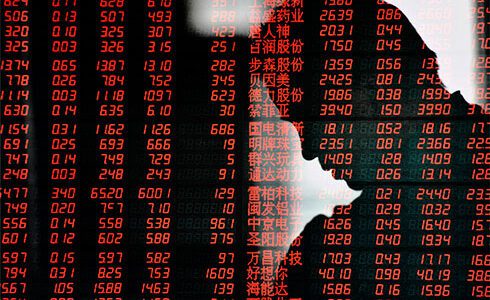
Most of the stock indices of the largest Asian countries are falling on Wednesday.
Markets continue to be negatively affected by the threat of a recession in the global economy against the backdrop of persistently high inflation and tightening of monetary policy by major central banks, writes MarketWatch.
The International Monetary Fund on the eve worsened its forecast for global economic growth next year to 2.7% compared to 2.9% expected in July. At the same time, it is noted that the risks of a recession are especially high for Europe due to a sharp increase in energy prices.
China’s Shanghai Composite index fell 1.1% by 8:32 a.m. The Hong Kong Hang Seng shed 2.1%, falling for the fifth consecutive trading and is at its lowest level in the last 11 years.
Among the leaders of the decline in quotations on the Hong Kong Stock Exchange are securities of the owner of the restaurant chain Haidilao International Holding Ltd. (-7%), Budweiser Brewing Co. APAC Ltd. (-5.9%), casino operator Sands China Ltd. (-5.7%), developer Country Garden Holdings Co. (-5.6%).
Shares of Internet retailers Alibaba Group and JD.com fell 4.5% and 1.1%, respectively, while Internet giant Tencent Holdings Ltd. – by 2.2%, automakers Geely and BYD – by 3.1% and 0.5% respectively.
Among the components of Hang Seng, only three companies show an increase in value: insurer AIA (+0.7%), aluminum producer China Hongqiao Group Ltd. (+0.2%) and pharmaceutical CSPC Pharmaceutical Group Ltd. (+0.1%). Share price of China Mobile Ltd. is at the close of the previous day.
The value of the Japanese Nikkei 225 fell by 0.06% by 8:27 Moscow time.
The volume of orders for basic manufacturing equipment in Japan, an indicator of capital expenditure for the next 3-6 months, fell 5.8% in August compared to the previous month, the country’s cabinet said in a statement. This was the worst result in the last six months. Analysts, on average, had expected a contraction of just 2.3%, according to Trading Economics.
The leaders of the decline in quotations are papers of Tokyo Electron Ltd. (-4%), Pacific Metals Co. (-3.5%) and Mitsubishi Motors Corp. (-3.5%).
Meanwhile, the value of retailers Seven & I Holdings Co. is rising. (+3.7%) and Aeon Co. (+3.5%), as well as railway operators West Japan Railway Co. (+2.8%) and Central Japan Railway Co. (+2.5%).
The Australian S&P/ASX 200 fell 1.5%.
The capitalization of the world’s largest mining companies BHP and Rio Tinto fell by 1% and 1.9%, respectively
Meanwhile, the South Korean Kospi index increased by 0.35% by 8:27 Moscow time.
Quotes of securities of one of the world’s largest manufacturers of chips and electronics Samsung Electronics Co. rise by 0.9%, while the cost of automaker Hyundai Motor fell by 0.3%.
The Bank of Korea on Wednesday raised the base interest rate by 0.5 percentage points – up to 3% per annum, which coincided with the expectations of experts. The cost of lending has been increased for the eighth time since August 2021.
The Central Bank predicts that inflation in the country will peak in October, but will remain quite high in the near future – more than 5%, at least until the end of the first quarter of 2023. South Korea’s GDP is expected to increase by 2.6% in 2022, and by 2.1% next year.